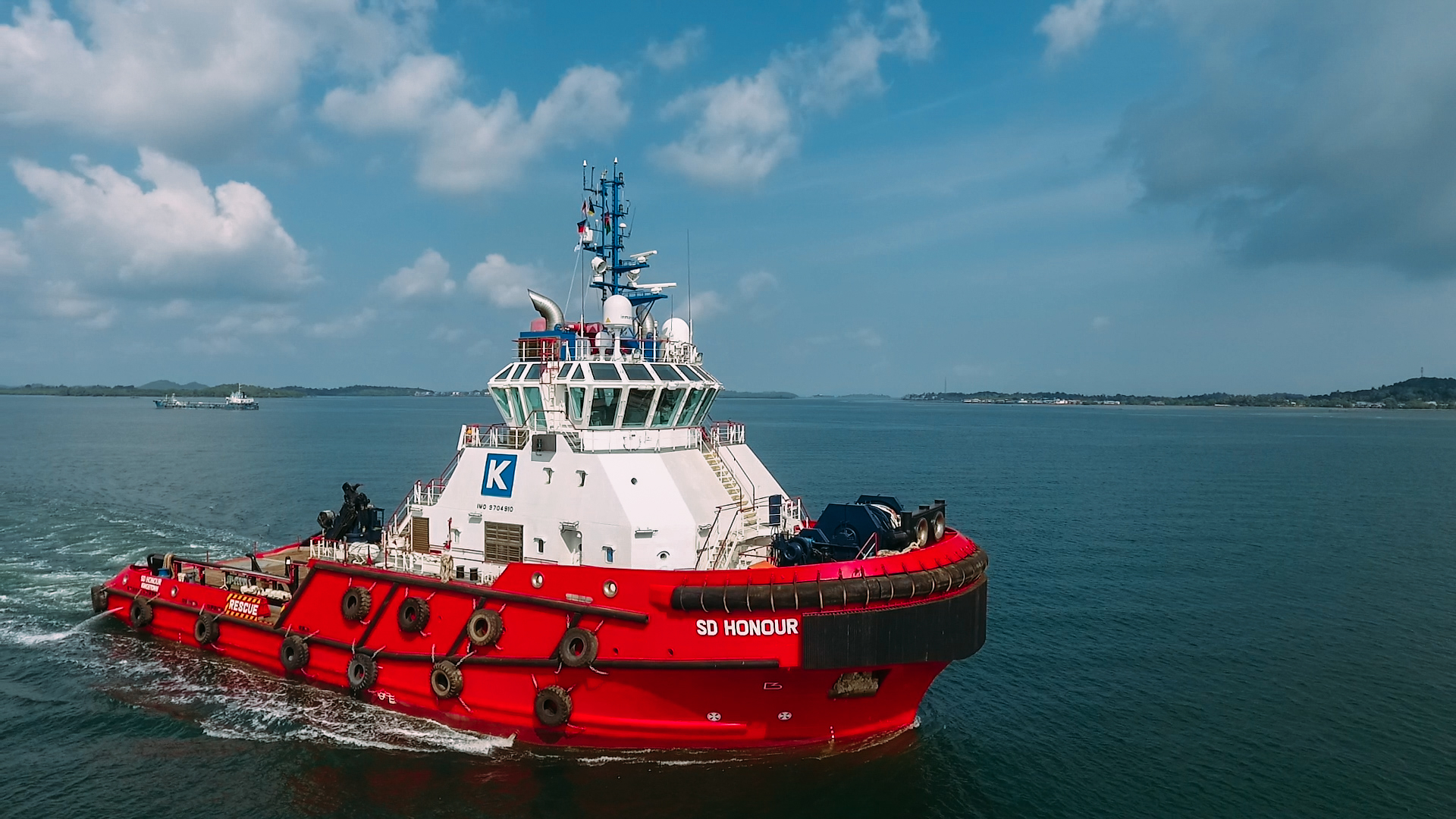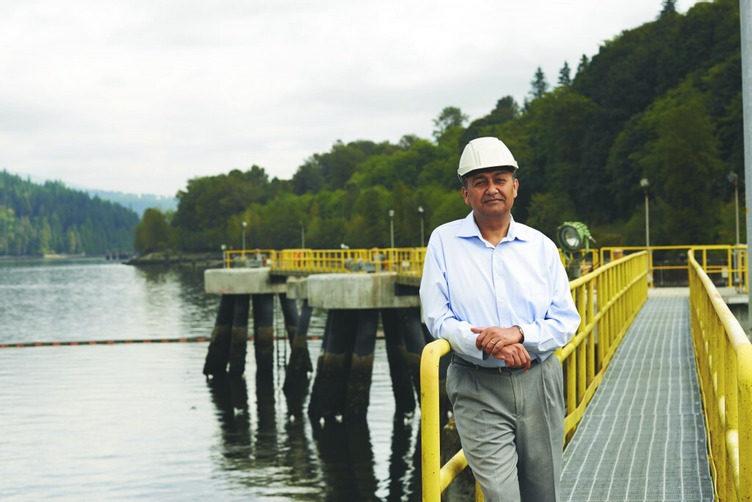
The Trans Mountain project has reached another milestone in its work to strengthen marine safety off the coast of B.C., in partnership with a local First Nation community.
Oil tankers have been loading from the project’s Westridge Marine Terminal without a single marine spill in more than 65 years of operations.
Now the high-powered tugboats that escort tankers and help navigate in the unlikely event of a failure will soon provide this service along a much larger stretch of the shipping lanes that link the Westridge Marine Terminal with open water.
“Our number one job is to keep the coastline safe,” says Sean Leet, CEO of Horizon Maritime, which will provide the new tug services as part of KOTUG Canada Inc.
“The Sc’ianew First Nation have partnered with us on the proposal from the start and that was our vision for these assets that had the primary responsibility of keeping the coastline safe to be in Sc’ianew territory.”
The new tugs will operate out of a new docking station at Beecher Bay in the Cheanuh Marina, which is owned by the Sc’ianew First Nation. The location near Sooke, B.C. is about 150 kilometers southwest of the Westridge terminal. It’s approximately where right now, tug escorts with Trans Mountain tankers end. When the project is complete, tugs will accompany tankers past Beecher Bay and out to open water.
The 9,000 horsepower tugboats are each 50 metres long and capable of providing about 120 tonnes of pulling power.
Sc’ianew members will be trained to work on board tug crews when they go into operation, KOTUG says.
“What our new expanded tug escort arrangement will do is ensure there is a tug travelling with the latest tanker all the way out to the Pacific Ocean,” says Trans Mountain master mariner Bikramjit Kanjilal.
“It expands a safety element that is already present and now covers for the entire time that the latest tanker is traveling in Canadian waters. If something takes place that’s outside the control of the [tanker] or the control of the pilot and requires outside assistance, then that assistance is already traveling with the vessel. It’s right there.”

New technology built on the tugs such as efficient engines and special graphene paint are expected to reduce underwater noise and improve energy efficiency, KOTUG says.
The new docking station at the Cheanuh Marina will also be home to a new large ocean-going oil spill response vessel owned by KOTUG, in a separate contract with the Western Canada Marine Response Corporation (WCMRC).
It’s part of Trans Mountain’s $150-million investment in WCMRC on the largest-ever expansion of spill response on B.C.’s south coast, part of the conditions on the expansion project mandated by the Canada Energy Regulator.
WCMRC is building six new spill response bases, including two 24/7 on-water bases, as well as doubling the size of its response vessel fleet from 44 to 88, and adding 137 full-time positions, primarily for spill response personnel.
As of fall 2021, 34 of the additional vessels have been delivered and eight are being built, while 110 of the new full-time positions have been filled, Trans Mountain has reported.
The unaltered reproduction of this content is free of charge with attribution to Canadian Energy Centre Ltd.